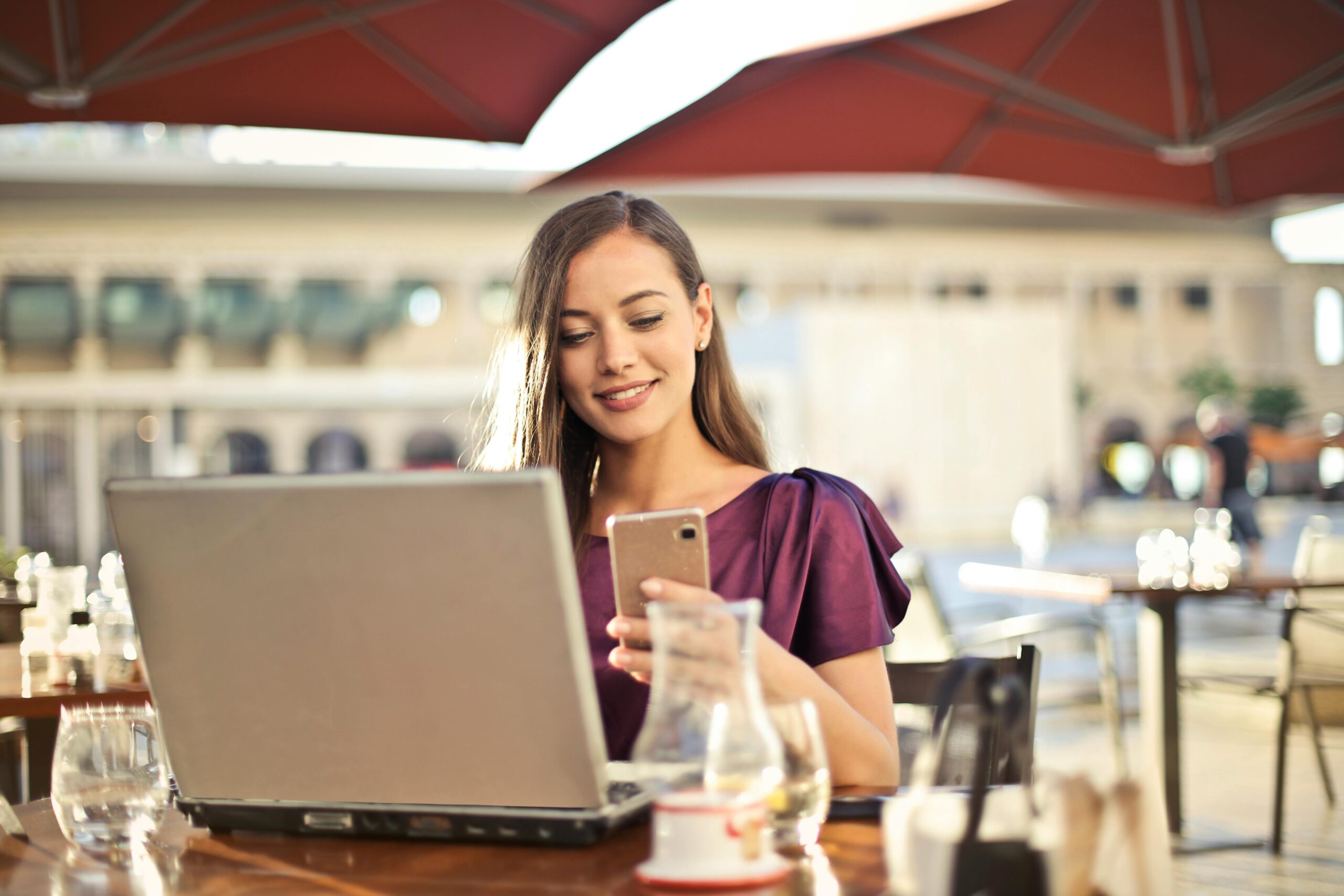
Knowledge, right at your fingertips.
Advice and answers from our team
‒South Pointe Insurance Agency
Learn Auto Insurance

Auto Insurance 101
Auto Insurance Essential

Auto Insurance Tips
6 Auto Insurance Tips

Save on Auto Insurance
6 Tips to Save on Auto Insurance
Automobile Insurance Coverage.
Owning a car in California comes with mandatory responsibility: auto insurance. Not only does it safeguard you and your vehicle financially in case of accidents, but it’s also the law. To steer clear of trouble, make sure you’re covered. The resources provided below can help you navigate the world of auto insurance and make informed choices when shopping for the right protection for your situation. Don’t wait, get covered and hit the road with peace of mind!
California Law.
You must show financial responsibility for any vehicle that
you own, in case of injury to other people or damage to
their property. California law states,
“All drivers and all owners of a motor vehicle shall at all times be able to establish financial responsibility and shall at all times carry in the vehicle evidence of the form of financial responsibility in effect for the vehicle.”
Minimum liability limits that you must have in California.
Department of Motor Vehicles (DMV) outlines minimum limits that you must purchase under Section 16451 of the Vehicle Code. Bodily injury liability limits must meet the minimum of $15,000 per person and $30,000 total for all persons per accident. Property damage liability limits must meet the minimum of $5,000 per accident.
Other ways to show financial responsibility.
There are three ways to accomplish financial responsibility:
- Obtain automobile liability insurance from an insurance company authorized to do business in California.
- Make a cash deposit of $35,000 with the Department of Motor Vehicles (DMV).
- Obtain a surety bond for $35,000 from an insurance
company licensed to do business in California.
What happens if I do not have liability coverage?
If you do not show proof of insurance when asked, you will
get a ticket. If you do not have any insurance, your license
may be suspended and your vehicle could be impounded.
How do I prove that I have liability coverage?
Your insurance company will provide you with proof of
insurance. It lists the insured vehicles and the name(s) of
the insured(s). It also shows the policy number and the
dates the policy starts and ends. Keep this card in your car.
Know Your Policy.
Your auto insurance policy is a contract between you and
your insurance company. It explains:
- Your costs.
- Your coverages—the different things your policy covers.
- Your exclusions—the things your policy does not cover.
It is important to be familiar with your auto policy before you need it. Read it carefully. The Declarations page is a useful summary of your policy.
Know Your Rights
Good Driver Provision. Every automobile insurance company must offer coverage for Good Drivers. A Good Driver is a person who has been licensed for at least 3 consecutive years and has no more than one-point on his or her driving record. It is important to note that your rates as a Good Driver must be at least 20% lower than a non-Good Driver’s rates would be at the same insurance company.
Compare Policies
Auto policies can vary a lot . Discuss your insurance needs
openly with your agent, broker, or insurance company.
They can help you, but it is your responsibility to choose
the insurance that is best for you. You should always get
several quotes. A quote is an estimate of your premium cost. Compare quotes before you buy a policy.
Liability Insurance.
Coverage for a policyholder’s legal liability resulting from injuries to other persons or damage to their property.
Automobile Insurance Deductible.
Deductible – The amount of the loss that the policyholder is responsible to pay up-front before covered benefits from the insurance company are payable. This is applicable to comprehensive or collision coverage only.
Comprehensive Coverage
Pays for damage to your car caused by reason other than collision, such as fire, theft, vandalism, windstorm, flood, et cetera.
Collision Coverage
Pays for damage to your car caused by physical contact with another vehicle or with another object, such as a tree, boulder, guardrail, structure, or person.
Uninsured Motorist Coverage (UMC)
Provides coverage for a policyholder involved in a collision with a driver who does not have liability insurance or who does not have sufficient liability limits to pay for damages. UMC comes in two parts: uninsured motorist bodily injury (UMBI) and uninsured motorist property damage (UMPD). UMBI coverage pays for injuries to you or any person in your car when there is a collision with an uninsured driver. UMPD coverage pays for the property damage to your car when there is a collision with an identified uninsured driver. UMC must be offered when you purchase liability coverage for your auto. If you decline UMC, you must sign a declination waiver.
Medical Payments Coverage
Medical Payments Coverage – Covers the medical costs (up to the specified limit) resulting from an auto accident for you, your family, or others in your car. This coverage pays regardless of fault.
Rental Reimbursement Coverage
This optional coverage pays your expenses to rent an auto if you have a loss covered under Comprehensive or Collision benefits. Coverage is sold based on a daily amount of expense subject to a maximum limit.
Loan Gap Coverage.
This coverage pays the difference between the fair market value of your vehicle and the loan balance owed to your lender. This coverage is available on new vehicles only.
Optional Types of Coverage
Towing and road service.
- Rental reimbursement pays for car rental when your own car is being repaired after a covered accident.
- You can choose to buy these coverages. They are not
required.
‒South Pointe Insurance Agency
Learn Homeowner Insurance

Homebuying 101
8 Essential Steps for First-Time Homebuyers and homeowner insurance.

Home Renovations Tips
6 Home Renovations that Can Affect Your Insurance

Protect Your Valuables Tips
6 Tips to Protect Your Possessions with Valuable Items Insurance Coverage

Home Appliances Tips
Does My Home Insurance Cover Broken Appliances?
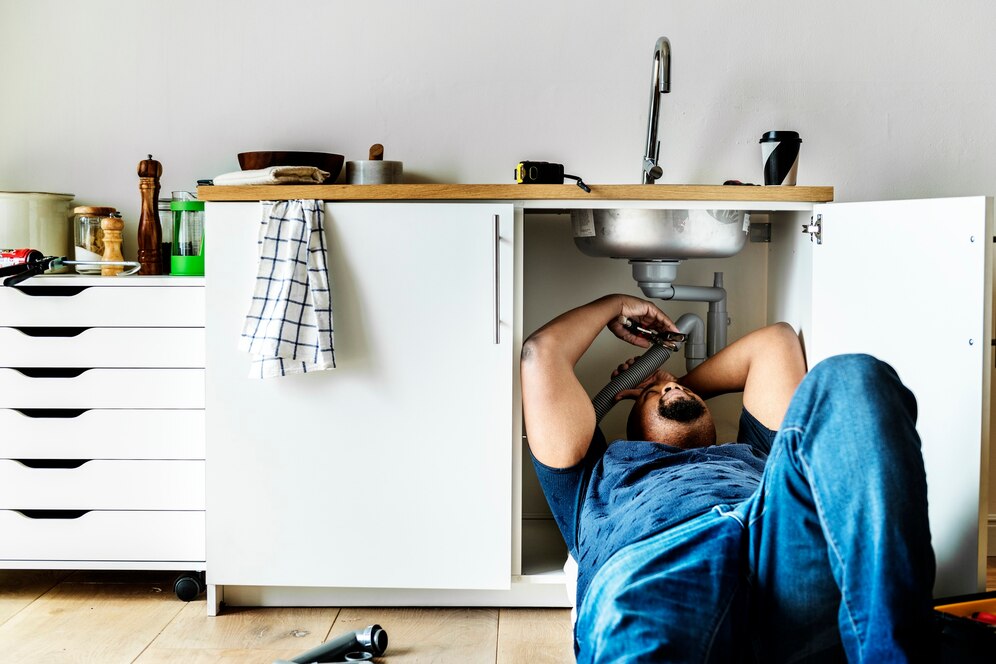
Are burst Pipes covered?
Does Homeowners Insurance Cover Broken Pipes?

Are Fences covered?
Does Homeowners Insurance Cover Fences?
What Is Covered By Homeowners Insurance?
The homeowners policy contains two sections. Section I
provides property coverages (A, B, C and D) while Section II
provides liability coverages (E and F). A brief description of
the individual coverages follows:
- Coverage A — Dwelling
- Coverage B — Other Structures
- Coverage C — Personal Property
- Coverage D — Loss of Use
- Coverage E — Personal Liability
- Coverage F — Medical Payments to Others
Coverage A – Dwelling
Coverage A provides major property coverage that protects
your house and attached structures if it is damaged by a
covered peril.
Coverage B – Other Structures
This coverage provides protections to other structures
on the residence premises that are not attached to the
dwelling. Items covered include detached garages, tool
sheds, etc. Coverage B is normally limited to 10% of
the coverage A limit. However, you may purchase more
coverage for an additional premium.
Coverage C – Personal Property
This coverage provides protection for the contents of your
home and other personal belongings owned by you and
other family members who live with you. Coverage C is normally 50% of coverage A or is subject to an established amount agreed upon by you and the insurance company. Coverage is limited on certain types of property that are especially susceptible to loss, such as:
- Jewelry
- Antiques
- Furs
- Collectibles
- Fine arts
- Firearms
- Silverware
- Money
Coverage D – Loss of Use
This coverage will help with additional living expenses if
your home is damaged by a peril insured against to the
extent that you cannot live in your home. These expenses
include, but are not limited to, housing, meals and
warehouse storage. Coverage D is normally limited to 20
percent of Coverage A.
Coverage E – Personal Liability
This section of the homeowners policy will provide
coverage in the event you or a resident of your household
are legally responsible for injury to others. Coverage E
normally provides a defense and will pay damages, as
the insurance company deems appropriate. There are
some exceptions. The liability coverage will not protect
you in all situations, such as an intentional act. All of
the exclusions and specific language can be found in your
policy.
Coverage F – Medical Payments to Others
This coverage pays for reasonable medical expenses for
persons accidentally injured on your property. For example,
if a neighbor’s child is injured while playing in your home, the
medical payments portion of your homeowners policy may
pay for necessary medical expenses. Medical payments coverage does not apply to your injuries or injuries of those who reside in your household. It is not a substitute for health insurance. Business activities are also excluded. All of the exclusions and specific language can be found in your policy.
Replacement Cost Value vs. Actual Cost Value.
Replacement cost value is the amount it will take to replace your property or belongings without any deduction for depreciation. Actual cash value is the replacement cost value, minus depreciation.
What Limits Should I Set on My Policy?
The “dwelling” limit should be the amount it would cost to
replace your home. This may have nothing to do with the
purchase price or the current market value of your home,
as homeowners insurance does not generally cover the
value of the land upon which your dwelling sits. Therefore,
when determining the appropriate amount of coverage
to purchase, you should consider the cost of labor and
materials necessary to rebuild the dwelling, not fluctuations
in the real estate market.
Home Protection Contracts.
Home Protection Contracts (commonly called home
warranties) protect homeowners from repair costs
that aren’t covered by homeowners insurance. Home
protection contracts cover such things as the plumbing,
heating, electrical, and major appliances. Structural items
are generally not covered. Home protection contracts will usually cover malfunctions of major appliances such as washers, dryers, ovens, and refrigerators. In some cases, or for additional fees, the warranty might extend to air conditioning units, garbage disposals, doorbells, ceiling fans, garage-door openers, water softeners, trash compactors, and built-in microwaves. It is important to note that a home protection contract is not an insurance policy
(NFIP) administered by FEMA.
This federally backed flood insurance available in communities that adopt and enforce floodplain management ordinances to reduce future flood losses. The maximum coverage amounts for a single-family home are $250,000 for the structure and $100,000 for its contents. Renters may also purchase up to $100,000 of coverage for their personal belongings. For information about flood insurance, property owners or renters should contact their insurance agent, call the NFIP’s Referral Center toll-free at 1-888-379-9531 or visit the NFIP’s website, floodsmart.gov.
Surplus Lines Market
If you are having difficulty finding the coverages you want,
you may try obtaining coverage in the “surplus lines” market.
Ask your agent or broker if they are able to obtain coverage
with a surplus lines insurer or obtain coverage through a
surplus lines broker. Please note that surplus lines insurers
are not backed by the California Insurance Guarantee
Association.
‒South Pointe Insurance Agency
Learn Landlord Insurance

Landlord insurance 101
8 Essential Steps for First-Time Homebuyers and homeowner insurance.

Renter insurance Tips
Can landlord require tenants to have Renters Insurance?

Landlord vs. Homeowners:
Landlord Insurance vs. Homeowners Insurance: What’s the Difference?
What Is Covered By Landlord Insurance?
The homeowners policy contains two sections. Section I
provides property coverages (A, B, C and D) while Section II
provides liability coverages (E and F). A brief description of
the individual coverages follows:
- Coverage A — Dwelling
- Coverage B — Other Structures
- Coverage C — Personal Property
- Coverage D — Fair Rental Value
- Coverage E — Personal Liability
- Coverage F — Medical Payments to Others
Coverage A — Dwelling
Coverage A provides major property coverage that protects
your house and attached structures if it is damaged by a
covered peril.
Coverage B — Other Structures
This coverage provides protections to other structures
on the residence premises that are not attached to the
dwelling. Items covered include detached garages, tool
sheds, etc. Coverage B is normally limited to 10% of
the coverage A limit. However, you may purchase more
coverage for an additional premium.
Coverage C — Personal Property
This coverage provides protection for the contents of your
home and other personal belongings owned by you and
other family members who live with you. Coverage C is normally 50% of coverage A or is subject to an established amount agreed upon by you and the insurance company. Coverage is limited on certain types of property that are especially susceptible to loss, such as:
- Jewelry
- Antiques
- Furs
- Collectibles
- Fine arts
- Firearms
- Silverware
- Money
Coverage D — Loss of Use
This coverage will help with additional living expenses if
your home is damaged by a peril insured against to the
extent that you cannot live in your home. These expenses
include, but are not limited to, housing, meals and
warehouse storage. Coverage D is normally limited to 20
percent of Coverage A.
Coverage E — Personal Liability
This section of the homeowners policy will provide
coverage in the event you or a resident of your household
are legally responsible for injury to others. Coverage E
normally provides a defense and will pay damages, as
the insurance company deems appropriate. There are
some exceptions. The liability coverage will not protect
you in all situations, such as an intentional act. All of
the exclusions and specific language can be found in your
policy.
Coverage F — Medical Payments to Others
This coverage pays for reasonable medical expenses for
persons accidentally injured on your property. For example,
if a neighbor’s child is injured while playing in your home, the
medical payments portion of your homeowners policy may
pay for necessary medical expenses. Medical payments coverage does not apply to your injuries or injuries of those who reside in your household. It is not a substitute for health insurance. Business activities are also excluded. All of the exclusions and specific language can be found in your policy.
Will My Policy Completely and Totally Replace My Home If It Is Destroyed?
This depends on whether your policy is a replacement cost
value policy or an actual cash value policy. If your policy is
an actual cash value policy, it will not.
Actual cash value recovery is determined as follows:
This depends on whether your policy is a replacement cost
value policy or an actual cash value policy. If your policy is
an actual cash value policy, it will not.
Actual cash value recovery is determined as follows:
- In case of total loss to the structure, the policy limit or the
fair market value of the structure, whichever is less, or - In case of a partial loss to the structure, the amount it
would cost the insured to repair, rebuild, or replace less a
fair and reasonable deduction for physical depreciation, or the policy limit, whichever is less.
What Limits Should I Set on My Policy?
The “dwelling” limit should be the amount it would cost to
replace your home. This may have nothing to do with the
purchase price or the current market value of your home,
as homeowners insurance does not generally cover the
value of the land upon which your dwelling sits. Therefore,
when determining the appropriate amount of coverage
to purchase, you should consider the cost of labor and
materials necessary to rebuild the dwelling, not fluctuations
in the real estate market.
Home Protection Contracts
Home Protection Contracts (commonly called home
warranties) protect homeowners from repair costs
that aren’t covered by homeowners insurance. Home
protection contracts cover such things as the plumbing,
heating, electrical, and major appliances. Structural items
are generally not covered. Home protection contracts will usually cover malfunctions of major appliances such as washers, dryers, ovens, and refrigerators. In some cases, or for additional fees, the warranty might extend to air conditioning units, garbage disposals, doorbells, ceiling fans, garage-door openers, water softeners, trash compactors, and built-in microwaves. It is important to note that a home protection contract is not an insurance policy
(NFIP), administered by FEMA,
makes federally backed flood insurance
available in communities that adopt and enforce floodplain
management ordinances to reduce future flood losses.
The maximum coverage amounts for a single-family home
are $250,000 for the structure and $100,000 for its contents. Renters may also purchase up to $100,000 of coverage for their personal belongings. For information about flood insurance, property owners or renters should contact their insurance agent, call the NFIP’s Referral Center toll-free at 1-888-379-9531., or visit the NFIP’s website, floodsmart.gov.
Surplus Lines Market
If you are having difficulty finding the coverages you want,
you may try obtaining coverage in the “surplus lines” market.
Ask your agent or broker if they are able to obtain coverage
with a surplus lines insurer or obtain coverage through a
surplus lines broker (Please note that surplus lines insurers
are not backed by the California Insurance Guarantee
Association)
‒South Pointe Insurance Agency
Learn Condo Insurance

Condo insurance 101
8 Essential Condo insurance 101

Condo insurance Tips
10 Condo insurance Tips
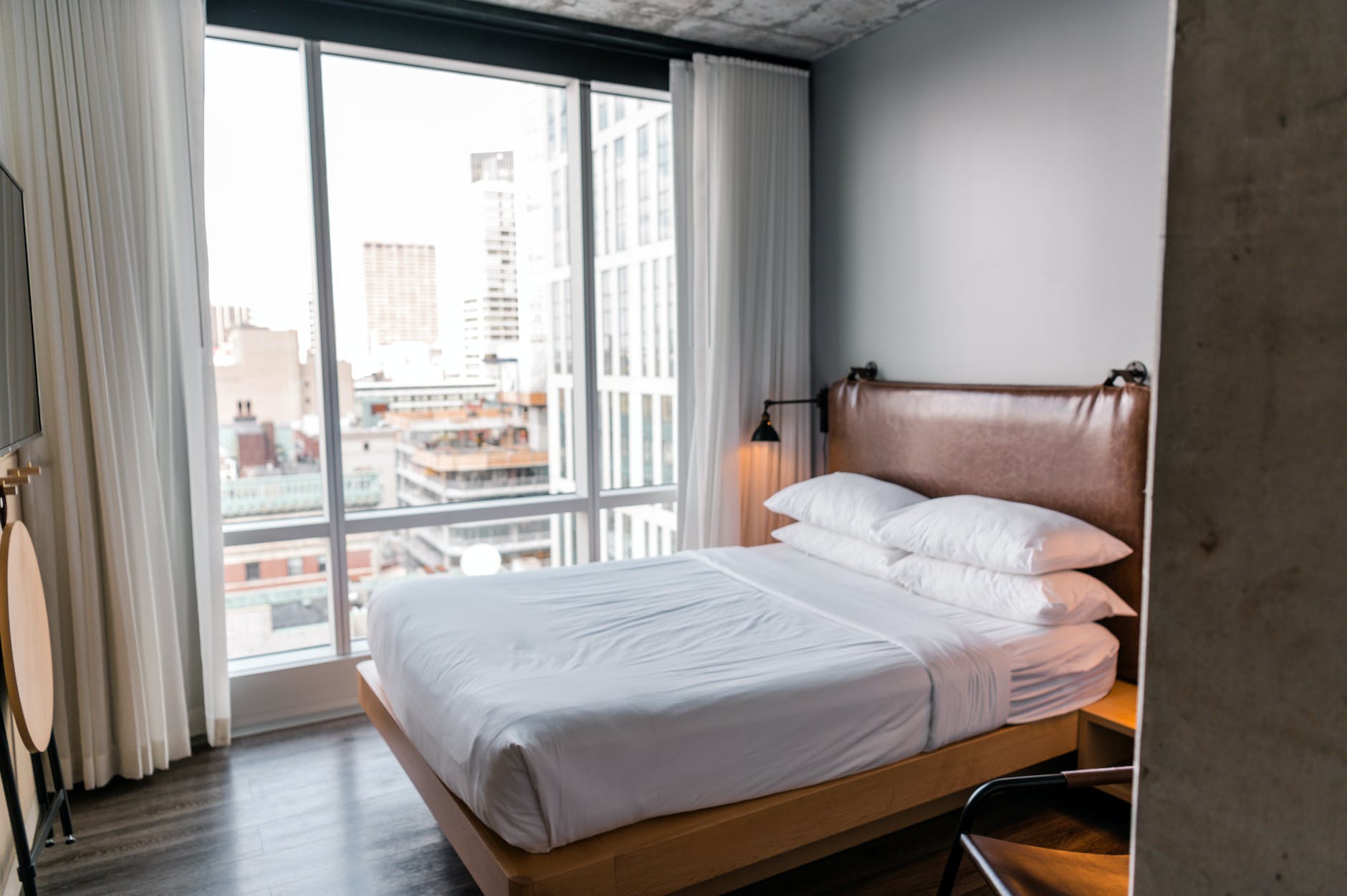
Condo Saving Tips
6 Condo Saving Tips
What is condo insurance, and why do I need it?
Condominium owners insurance can protect you and your unit from the unexpected. If your condo is damaged, your belongings are stolen or someone gets injured at your home, it can help cover repairs or replacement, temporary housing, medical bills, legal fees and more.
A condo policy is recommended for anyone who owns a condo, and may even be required by your mortgage lender. Your condo association may also have its own coverage requirements, which may reflect your community by-laws, rules and coverage gaps in the association’s insurance policy (or master policy). And in certain areas, you may need separate policies or coverage to help protect your condo and personal belongings against damage due to floods, earthquakes, windstorms or hail.
Most policies have 3 key elements: the premium which is how much you pay for coverage, deductibles which are how much you’re responsible for out-of-pocket in the event of a covered claim, and limits which are the most your insurer will pay for a claim.
Condo insurance is coverage you hope to never have to use, but if the unexpected happens, it can help you restore your life back to normal.
Theft Protection
The condominium unit owner policy can also protect your property against many types of theft loss in your condo or anywhere in the world. Also included is coverage that can pay for theft from your unattended car or boat.
Special Limits of Liability for Certain Possessions
Most condo policies include special limits of liability for certain types of property. For example, $200 for money and coins, and $1,000 for theft of jewelry, watches or furs. You generally can choose to increase these amounts.
Personal Liability Protection
If a claim is brought against you or you are sued for accidentally hurting other people or damaging their property, liability coverage can help to cover the associated legal costs and related damages. Most condo unit owner policies provide $100,000 (minimum) in personal liability coverage for covered bodily injury and property damage sustained by others for which you or covered residents of your household are legally responsible.
Medical Payments
Most liability coverage can pay up to $1,000 per person in necessary medical expenses — regardless of your legal responsibility — for guests who are accidentally injured on your property. It also can provide coverage in other situations as well. Higher coverage amounts are available.
Damage to Property of Others
Generally, should you accidentally damage someone else’s personal property while that property is in your care, your condo owners policy can pay up to $1,000 for each covered occurrence.
Condo Additional Living Expenses
If your unit is damaged and you have to move out while it’s being repaired, loss of use coverage can help. The policy can pay for additional necessary living expenses (which can include hotel, meals, laundry, etc.), up to a percentage of the contents coverage amount you selected. This is subject to coverage terms and limits.
Dwelling, Additions and Alterations
A condo unit owner’s policy can also provide coverage in other situations as well. According to your condominium declaration and/or bylaws, and/or the state where you live, you may be responsible for interior parts of your unit such as glass, walls and doors. Additions, alterations and other improvements made to your unit can also be covered up to the dwelling coverage limit.
Loss Assessment Coverage
Generally, condominium insurance can provide up to $1,000 of protection if damage to commonly owned property exceeds the amount of coverage in the condominium association’s insurance policy. If your condo association assesses all unit owners for the additional loss (or for personal liability claims against the association), this coverage can help. This amount may be increased.
Coverage for Other Structures
You may own other structures that are not part of your condo unit, such as a carport, detached garage or storage shed. If these structures are not considered to be common property, they generally are not covered under your association’s insurance policy. Coverage options may be available as part of your condo policy.
Broadened Coverage for Contents
Special personal property coverage provides “all-risk” protection for your possessions. This generally means that your personal property can be covered when damaged in many situations, regardless of the cause of loss. This is subject to coverage terms and limits.
Contents Replacement Cost
Personal property replacement cost loss settlement provides for settlement of covered personal property losses based on replacement cost at the time of loss, with no deduction for depreciation. The coverage is subject to applicable policy limits and deductibles, and special limits apply to certain items such as jewelry, watches and furs.
Valuable items plus
Valuable items plus provides protection for special property such as jewelry, fine art, musical instruments, and home computers for an extended variety of losses and can provide higher limits of coverage. For your convenience, no appraisal or listing of insured items is required.
‒South Pointe Insurance Agency
Learn Renter Insurance

Renter insurance 101
8 Essential Steps for First-Time Homebuyers and homeowner insurance.

Renter Tips
6 Home Renovations that Can Affect Your Insurance

Shop for Renters Insurance
6 Tips to Protect Your Possessions with Valuable Items Insurance Coverage
How Does Renters Insurance Work?
Renters, even though landlords have insurance, need their own coverage to protect their belongings from damage or theft. Don’t risk losing your valuables!
Protecting You, Along with What’s Inside Your Apartment
It’s not just your possessions that renters insurance coverage can help protect. It can also help protect you. In case a claim is brought against you or you are sued by a third party, your renters personal liability coverage can help to cover the legal costs and related damages. Many renters policies provide a minimum of $100,000 of financial protection that may help if someone claims injuries or damages while in your apartment, or caused by your personal activities or those of your household members.
For example, if you are found legally responsible for accidental fire damage to the building where you live, liability coverage in a renters insurance policy may provide financial protection. This liability protection may also extend to any vacation property that you rent.
Actual Cash Value vs. Full Replacement
An important consideration for consumers is whether to buy an actual cash value renters policy or a policy that covers the full cost of replacement.
With actual cash value coverage, insurers depreciate lost or damaged items based on their age. For example, if you owned a 10-year-old couch that was stolen, the actual cash value would be the cost of buying a used couch of comparable age and condition.
If your policy covered your couch at full-replacement value, your insurer would pay based on the cost of a new couch of the same quality without applying depreciation.
Why You Need a Renters Insurance Policy
Many renters don’t realize how much they could benefit from having an insurance policy that can help protect their valuables in a life-changing event like a fire or theft. If you assume that damage to your property in your rental home will be covered by your landlord’s insurance policy, you’re making a mistake. The owners of rental properties typically purchase only enough insurance to repair or replace their structures. Insuring your personal property is up to you.
Does renters insurance offers the same general personal property coverage?
Yes, It helps protect against losses from such mishaps as theft, fire, lightning, vandalism, windstorms and water damage from broken water pipes.
If your rental home should become uninhabitable, your renters policy typically will help address some of the costs for you to temporarily live elsewhere, up to your policy limits. This benefit usually includes the cost of meals, over and above your normal expenses.
Renters insurance goes beyond protecting your belongings.
It shields you from legal claims if you’re found negligent. It covers you, your family, and pets for injuries or property damage caused to others. Imagine a guest getting hurt at your party – your policy (up to its limit) would cover their medical bills and your legal defense if you’re held responsible.
‒South Pointe Insurance Agency
Learn Umbrella Insurance

Umbrella insurance 101
Umbrella insurance 101

Umbrella insurance Tips
6 Umbrella insurance Insurance Tips

Shop for Umbrella insurance
6 Tips to Protect Your Asset with Umbrella insurance Coverage
What is umbrella insurance in California?
An extra layer of liability coverage that kicks in after your existing policies (auto, homeowners, etc.) reach their limits.
Protects your assets (savings, investments, future wages) from lawsuits and claims exceeding those limits.
Do I need umbrella insurance in California?
Depends on your assets, risk tolerance, and specific situation. Consider factors like high net worth, owning rental properties, having dogs, etc.
How much umbrella insurance do I need in California?
Experts recommend $1 million minimum, but consider your specific liabilities and potential risks. Talk to an Southpointe insurance agent for personalized advice.
What does umbrella insurance cover in California?
Typically covers bodily injury, property damage, personal liability, and legal defense costs exceeding other policies.
May also cover specific situations like slander, libel, and dog bites (consult your policy details).
What doesn’t umbrella insurance cover in California?
Intentional acts, business-related liabilities, and certain types of property damage (read your policy exclusions carefully).
How much does umbrella insurance cost in California?
Relatively affordable compared to potential payouts. Premiums depend on coverage amount, age, location, and risk factors. Often discounts available for bundling with other policies.
Does filing a claim affect my primary insurance rates?
Typically, no. Umbrella claims don’t directly affect your auto or homeowners’ rates. However, depending on the severity of the claim, your overall risk profile might change which could influence future rates.
Does umbrella insurance cover dog bites?
Yes, most umbrella policies in California extend liability coverage to dog bites, but there might be breed exclusions or limitations based on severity. Double-check your policy details.
What about injuries on my rental property?
Umbrella insurance can extend liability coverage to rental properties, but it’s crucial to inform your insurer and ensure your landlord policy doesn’t already provide sufficient coverage.
Does it cover business liabilities?
No, standard umbrella insurance doesn’t cover business-related activities. You’ll need separate business liability insurance.
Are there discounts available for umbrella insurance in California?
Yes, many insurers offer discounts for bundling umbrella with other policies like auto or homeowners’. Ask your agent about available discounts.
What should I ask my agent?
Coverage:
- What does my umbrella insurance cover? (e.g., bodily injury, property damage, personal liability lawsuits)
- Are there any exclusions to the coverage? (e.g., intentional acts, business activities)
- Does my umbrella policy extend to other insured members of my household?
Limits and Costs:
- How much umbrella coverage do I need? (discuss factors like assets, liabilities, risk profile)
- What are the different coverage limits available? (typical range: $1 million to $10 million)
- How much will my premium cost for different coverage limits?
- Are there any discounts available for bundling my umbrella policy with other insurance policies?
Claims Process:
- What is the process for filing a claim under my umbrella policy?
- Who will defend me in a lawsuit if I’m covered by my umbrella policy?
- Are there any limitations on how I can use the funds from my umbrella policy payout?
Additional Considerations:
- How does my umbrella policy interact with my existing liability coverage (e.g., homeowners, auto)?
- Does my umbrella policy cover me if I travel internationally?
- Should I review my umbrella coverage needs periodically? (e.g., life changes, increased assets)
Beyond these, consider asking any specific questions you have related to your individual situation and concerns.
‒South Pointe Insurance Agency
Learn Motorcycle/Boat/RV Insurance

Motorcycle insurance 101
Umbrella insurance 101

Boat insurance Tips
6 Umbrella insurance Insurance Tips

Shop for RV insurance Tips
6 Tips to Protect Your Asset with Umbrella insurance Coverage
How Much Does Motorcycle Insurance Cost?
Your cost can vary depending on several factors, including whether you are a new or experienced rider. Other considerations may include where you live, your riding history, the type of coverage you want and what discounts you’re eligible to receive.
How Much Is Boat Insurance?
Boat insurance costs will vary based on the state where you use your boat and the coverage options you select. For instance, agreed value policies will generally cost more than actual cash value policies. If keeping costs down is a priority, choosing a higher deductible can reduce your policy premium. Depending upon the state where the boat is used, policies can be purchased at a very reasonable price.
Why Do I Need Boat Insurance?
You need boat insurance for many reasons. Boat insurance covers loss or damage to your boat and helps protect you financially for injuries or damage caused by covered mishaps. In addition, liability coverage can help protect you if you cause injury to others or their property while using your boat. Medical payments coverage provides reimbursement for injuries to you and your guests. Boat insurance even covers on-water towing.
Is a Boat Covered Under Homeowners Insurance?
Carrying boat or yacht insurance is a smart decision. Contrary to popular belief, your vessel is not automatically covered under your homeowners policy. If you cause an accident, or get into one with an uninsured vessel, you may be held responsible to cover related expenses, such as repairs, property damage, medical bills and more. Without the proper coverage, your financial well-being could be at risk.
Working with an insurance representative to create a marine insurance policy that helps fit your individual needs and budget can help protect you, your loved ones and your assets in the event there is a boating accident.
What Does Boat Insurance Cover?
Boat insurance coverage options depend on the state where your boat is used, your insurance company and the coverage you choose. Standard boat insurance coverage options typically include:
Physical damage: Collisions with another boat or submerged object.
Liability: Bodily injury or damage to the property of others.
Personal property: Including, but not limited to, fishing equipment, clothing and boating-related equipment such as life vests.
Towing and assistance: Reimbursement for transportation of your boat to a repair facility when it’s inoperable, and for gas delivery and roadside assistance.
To get the most complete protection for your individual needs, discuss available boat insurance coverage options with your insurance representative.
Qualifying Bikes and Vehicles
There are a variety of bikes that qualify for motorcycle coverage with Southpointe These include motorcycles from manufacturers such as Harley-Davidson, Honda and Indian, as well as models ranging from cruisers to touring to sport bikes and custom bikes. Coverage is also available for two-wheeled rides like scooters and mopeds and off-road vehicles such as dirt bikes, ATVs, UTVs and snowmobiles.
What Should I Consider When Purchasing Boat Insurance?
Before you purchase a boat policy, it is a good idea to talk to an insurance representative who can help you determine your insurance needs and explain your coverage options. Things to consider and discuss with your agent include:
What are the basic coverages, if any, required by your state or by your lender (if vessel is financed)? Will you be able to afford to pay your deductible and expenses above your policy limits in the event of a loss? How much would it cost to replace or repair your vessel, its fixtures and electronic equipment in the event of a loss? Do you frequently take people out on your boat? Do you have special features on your boat that might need extra protection? Where do you store your boat when it’s not in use? How do you transport your boat? Where do you plan to use your boat? Do you qualify for any discounts on your premium? Once you purchase a boat insurance policy, it is important to review your coverage needs with your insurance representative on an annual basis, or whenever there is a major change in the status of your boat or its use (e.g., you renovate your boat or change its storage location), to ensure your policy remains adequate for your needs and budget.
How Does the State Where I Use or Store My Boat Affect My Policy or Premium?
Many factors affect your cost for boat insurance – among them are the state in which you store and dock your boat, as well as the “navigation territory,” or the waters in which you use your boat. If you store or dock your boat in an area that is more prone to catastrophic weather events, your policy premium may be higher. You may also have a windstorm deductible. Certain states or marinas may also require you to carry specific coverages and limits, which could affect your premium. Where you use your boat matters, too. For instance, boats used inland typically have a lower rate than boats used on coastal waters.
Do I Need to Insure My Boat While It’s in Storage or in the Off-Season When I Am Not Using It?
A boat is a major investment, and one that should be protected year-round. Fire, theft, weather and natural disasters can damage your boat anytime, anywhere. Without adequate coverage, your boat remains exposed to these threats all year long. Your insurance representative can help you determine which boat policy options best fit your needs and budget.
Will My Policy Automatically Renew, or Do I Have to Reapply for Coverage?
Most boat policies renew each year as long as you continue to meet underwriting requirements. We will notify you about any policy or premium changes in advance.
It is important to review your coverage needs with your insurance representative on an annual basis, or whenever there is a major change in the status of your boat or the personal belongings you keep on it. This will help ensure that your boat policy meets your needs and budget.
Boat Coverage & Limits
Physical damage coverage provides protection if your boat collides with another vessel or submerged object, such as a log or a rock. It is included in most boat and other marine policies. Discuss your physical damage coverage needs with your insurance representative. Consider what it would cost to repair or replace your vessel when choosing your deductibles and policy limits. If you finance your vessel, your lender may require specific coverage options and limits, too. Remember, you will be responsible to cover your deductible, as well any related costs above this limit.
Comprehensive Coverage
Pays for damage to your car caused by reason other than collision, such as fire, theft, vandalism, windstorm, flood, et cetera.
Uninsured Motorist Coverage (UMC)
Provides coverage for a policyholder involved in a collision with a driver who does not have liability insurance or who does not have sufficient liability limits to pay for damages. UMC comes in two parts: uninsured motorist bodily injury (UMBI) and uninsured motorist property damage (UMPD). UMBI coverage pays for injuries to you or any person in your car when there is a collision with an uninsured driver. UMPD coverage pays for the property damage to your car when there is a collision with an identified uninsured driver. UMC must be offered when you purchase liability coverage for your auto. If you decline UMC, you must sign a declination waiver.
Medical Payments Coverage
Medical Payments Coverage – Covers the medical costs (up to the specified limit) resulting from an auto accident for you, your family, or others in your car. This coverage pays regardless of fault.
Rental Reimbursement Coverage
This coverage pays your expenses to rent an auto if you have a loss covered under Comprehensive or Collision benefits. Coverage is sold based on a daily amount of expense subject to a maximum limit.
Collision
Pays for damage to your car caused by physical contact with another vehicle or with another object, such as a tree, boulder, guardrail, structure, or person.
Compare Policies
Auto policies can vary a lot . Discuss your insurance needs
openly with your agent, broker, or insurance company.
They can help you, but it is your responsibility to choose
the insurance that is best for you. You should always get
several quotes. A quote is an estimate of your premium cost.
Compare quotes before you buy a policy.
What Is Boat Towing and Assistance Coverage, and Do I Need It? If So, How Much?
Towing and assistance coverage generally reimburses the cost to transport your boat to a repair facility in the event it is inoperable due to a covered loss, and can also cover gas delivery (but not the gas itself) and “boatside” assistance if you are stranded. It is included in most boat and other marine policies. Discuss your towing and assistance coverage needs and reimbursement levels with your insurance representative to ensure you have adequate protection.
Does My Policy Cover the Items I Store on My Boat or Just the Vessel?
In most cases, both. Boat policies typically include the coverage limits you select for damage to auxiliary equipment and personal property stored and used on your boat, as well as to the vessel itself.
What Are Boat Policy Deductibles? How Do They Work?
A deductible is the amount of money you must pay out of your own pocket before your boat insurance policy kicks in.
Here’s one example of how deductibles work: Let’s say your boat collides with a submerged rock, you have a policy limit of up to $10,000 and your deductible is $1,000. If the cost to repair your boat is $500, you will pay the entire $500 since it is less than your deductible. If the cost to repair your boat is $8,000, you will pay your deductible of $1,000 and your insurer will pay the remaining $7,000.
To keep monthly premiums low, boat owners and operators can opt for higher deductibles. But if you can’t pay your deductible or accident-related expenses above and beyond your policy limits, you may find yourself in financial crisis. Choose wisely. Consider your risk tolerance and financial circumstances when deciding the level of protection that’s right for you and your family – then work with your insurance representative to create a policy that balances your individual needs with a premium and deductible you can afford.
Evidence of financial responsibility must be carried at all times in the vehicle.
Most Californians maintain financial responsibility by purchasing automobile liability insurance from an insurance company authorized to do business in California.
Additional Kinds of Coverage
Towing and road service.
- Rental reimbursement pays for car rental when your own
car is being repaired after a covered accident. - You can choose to buy these coverages. They are not
required.
‒South Pointe Insurance Agency
Learn Earthquake Insurance
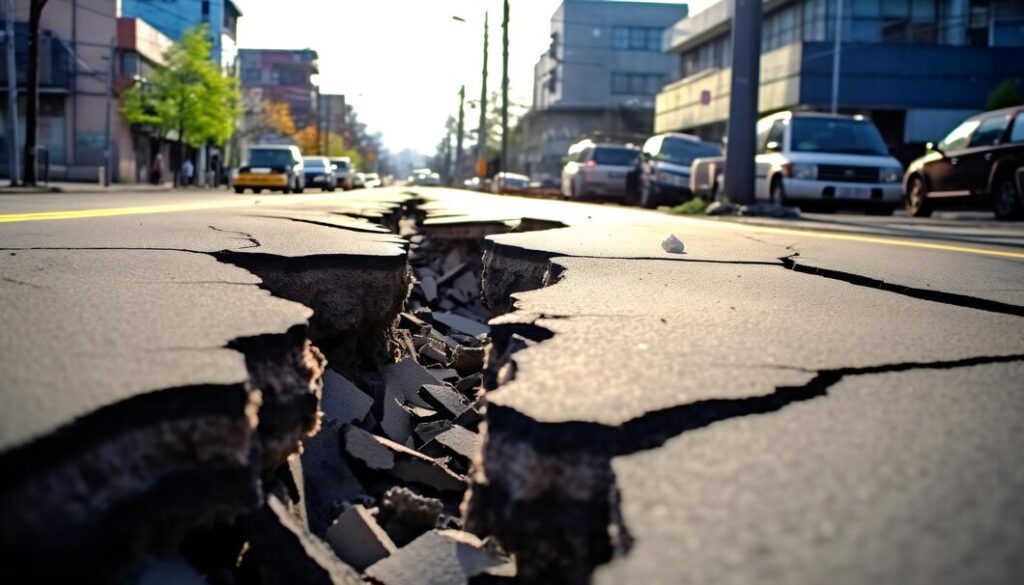
Earthquake insurance 101
Earthquake insurance 101
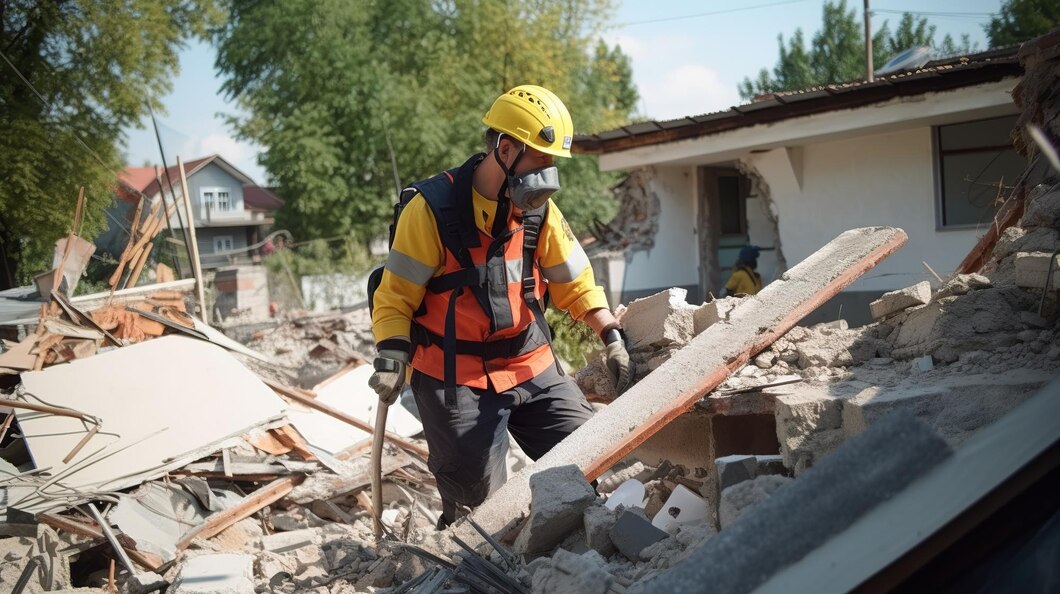
Earthquake insurance Tips
6 Earthquake insurance 101 Tips

Buying Earthquake insurance
6 Tips for Earthquake insurance 101
Before You Buy Earthquake Insurance
Earthquake insurance covers some of the losses and damage that earthquakes can cause to your home, belongings, and other buildings on your property.
If you have a mortgage, you must have homeowners insurance. But you do not have to buy earthquake insurance.
Does earthquake insurance cover all damage from earthquakes?
No. There are limits on what earthquake insurance pays. The purpose of earthquake insurance is to help put a roof back over your head. It does not replace everything you lost.
What if I have a mobile home?
You can buy earthquake insurance to cover damage to your home and belongings. It can also pay for living somewhere else while your mobile home is being repaired.
The California Earthquake Authority (CEA)
The California Earthquake Authority (CEA) provides most earthquake insurance in California. CEA offers earthquake policies, for homeowners, mobile home owners, condo unit owners and renters. You cannot buy earthquake insurance directly from CEA you buy it directly from insurance companies that are members of CEA. You must have a residential property insurance policy in place in order to get a CEA earthquake policy. You must purchase your CEA policy from the same insurance company that you have your residential policy with-see the list of CEA participating insurers here.
What Earthquake Insurance Does Not Cover
All insurance policies have exclusions. These are the things the policy does not cover. Read your policy to learn about your exclusions.
I have homeowners insurance. How can I get earthquake insurance?
If you have homeowners insurance in California, your company must offer to sell you earthquake insurance. It must offer this every other year. The offer must be in writing. It must tell you the amounts it covers (the limits), the deductible, and the premium. You have 30 days to accept the offer. The 30-day period starts the date the company mails the offer to you. If you do not reply, you are rejecting the offer.
What if I rent?
You can buy earthquake insurance to cover damage to your belongings and to pay for living somewhere else while your rented home is being repaired.
What if I have a condo?
You can buy earthquake insurance to cover damage to your belongings. It can also pay for living somewhere else while your condo is being repaired. You may also need insurance to help pay for your condo association assessment to repair your building. Talk to your condo association.
How do earthquake insurance premiums vary?
Your premium depends on many things, such as the location of your home, the cost to rebuild, type of construction, the coverages selected and the deductible. With CEA insurance, older homes may qualify for a discount of up 25 percent if they have been properly retrofitted.
Common Earthquake Insurance Exclusions
Fire
Earthquake insurance usually does not cover anything that your homeowners policy already covers. For example, your homeowners policy covers fire damage, even if an earthquake causes the fire. Therefore, your earthquake policy does not cover fire damage.
Land
Usually, earthquake insurance does not cover damage to your land, such as sinkholes from erosion or other hidden openings under your land. You may be able to buy limited additional coverage to restore or stabilize land.
Vehicles
Earthquake insurance does not cover damage to your vehicles. Check your auto insurance policy to find out if it covers that damage.
Flood
Earthquake insurance does not cover water damage from outside your home, such as sewer or drain back-up, flood, or tsunami. For example, if you live near a lake that floods your home after an earthquake, earthquake insurance will not pay to repair the damage. A flood insurance policy will cover you.
‒South Pointe Insurance Agency
Learn Commercial Auto Insurance

Commercial Auto 101
Commercial Auto insurance 101

Commercial Auto Tips
6 Commercial Auto 101 Tips

Buying Commercial Auto
6 Tips for Commercial Auto101
What does commercial auto insurance typically cover?
Liability: Pays for medical bills and property damage to others if you’re at fault in an accident.
Collision: Covers damage to your vehicle if you collide with another object.
Comprehensive: Covers damage from theft, vandalism, weather events, and other non-collision related incidents.
Medical payments: Covers medical expenses for drivers and passengers in your vehicle, regardless of fault.
Uninsured/underinsured motorist: Covers costs if you’re hit by a driver with no or insufficient insurance.
What are some optional coverages?
Hired and non-owned auto: Covers vehicles you use for business but don’t own.
General liability: Covers broader business-related liability beyond your vehicles.
Workers’ compensation: Covers medical expenses and lost wages for employees injured on the job.
Automobile Insurance Deductible.
Deductible – The amount of the loss that the policyholder is responsible to pay up-front before covered benefits from the insurance company are payable. This is applicable to comprehensive or collision coverage only.
Liability Insurance.
Coverage for a policyholder’s legal liability resulting from injuries to other persons or damage to their property.
What’s not covered by commercial auto insurance?
Intentional acts, employee personal use of vehicles, wear and tear, mechanical breakdowns.
Comprehensive Coverage
Pays for damage to your car caused by reason other than collision, such as fire, theft, vandalism, windstorm, flood, et cetera.
Uninsured Motorist Coverage (UMC)
Provides coverage for a policyholder involved in a collision with a driver who does not have liability insurance or who does not have sufficient liability limits to pay for damages. UMC comes in two parts: uninsured motorist bodily injury (UMBI) and uninsured motorist property damage (UMPD). UMBI coverage pays for injuries to you or any person in your car when there is a collision with an uninsured driver. UMPD coverage pays for the property damage to your car when there is a collision with an identified uninsured driver. UMC must be offered when you purchase liability coverage for your auto. If you decline UMC, you must sign a declination waiver.
Medical Payments Coverage
Medical Payments Coverage – Covers the medical costs (up to the specified limit) resulting from an auto accident for you, your family, or others in your car. This coverage pays regardless of fault.
Rental Reimbursement Coverage
This coverage pays your expenses to rent an auto if you have a loss covered under Comprehensive or Collision benefits. Coverage is sold based on a daily amount of expense subject to a maximum limit.
Collision
Pays for damage to your car caused by physical contact with another vehicle or with another object, such as a tree, boulder, guardrail, structure, or person.
‒South Pointe Insurance Agency
Learn Business Owner Policy (BOP) Insurance

BOP insurance 101
BOP insurance 101

BOP insurance Tips
6 BOP insurance 101 Tips

Buying BOP insurance
6 Tips for BOP insurance 101
What Does a BOP Cover?
A business owner’s policy (BOP) combines two types of coverages to protect your small business against a variety of claims. Its coverage components include:
Commercial general liability insurance
Commercial property insurance, often including business income and extra expense (BIEE)
The general liability portion of a BOP safeguards your business in the event someone makes a claim against you or your business. General liability insurance provides protection from liability lawsuits resulting from things like a customer slipping on a wet floor, a defective product causing damage to a client’s property, or claims that the products or services you provided caused injury. It can also protect you from libel, slander and certain legal claims related to advertising.
The property portion of a BOP helps protect business property you own, lease or rent, including your buildings, equipment, furniture and inventory. It helps cover repair or replacement costs of stolen, damaged or destroyed property, including property that isn’t yours but was in your care. It can also cover loss of income and covered expenses like rent, payroll and other financial responsibilities while your property is being repaired or replaced after a fire or other covered loss.
How Can a BOP Help Small Businesses?
If you are a small business owner, a business owner’s policy offers valuable protection if you encounter scenarios like the following:
A customer trips over a loose wire while visiting your business, falls and fractures their wrist. They sue you to cover their medical expenses. One of your contractors loses control of a piece of equipment, which damages the wall of a client’s home or accidentally breaks an item of value while performing their work. A pipe bursts and floods one of your workrooms, damaging business-critical equipment and some of your products. A fire destroys one of your buildings, leading you to temporarily shut down part of your business. Yet, despite being shut down, you still have to pay rent and your employees.
The property portion of a BOP helps protect.
Business property you own, lease or rent, including your buildings, equipment, furniture and inventory. It helps cover repair or replacement costs of stolen, damaged or destroyed property, including property that isn’t yours but was in your care. It can also cover loss of income and covered expenses like rent, payroll and other financial responsibilities while your property is being repaired or replaced after a fire or other covered loss.
Who Is a Business Owner’s Policy Right For?
BOP is built to protect many types of small businesses, including:
Commercial Real Estate
Contractors
Financial Services
Garages
Healthcare
Manufacturers
Personal Care Services
Pet Care Services
Printers and Publishers
Religious and Cultural Organizations
Restaurant and Food Service
Retail
Service Businesses
Technology Services
Wholesalers and Distributors
The general liability portion of a BOP.
BOP safeguards your business in the event someone makes a claim against you or your business. General liability insurance provides protection from liability lawsuits resulting from things like a customer slipping on a wet floor, a defective product causing damage to a client’s property, or claims that the products or services you provided caused injury. It can also protect you from libel, slander and certain legal claims related to advertising.
Hired and Non Owned Auto
Covers your business on those occasions when you rent, lease or borrow a vehicle on a short term basis, or when your employees use their personal vehicles for company business.
‒South Pointe Insurance Agency
Learn Individuals & Families Health Insurance

Individuals Health 101
Individuals Health 101
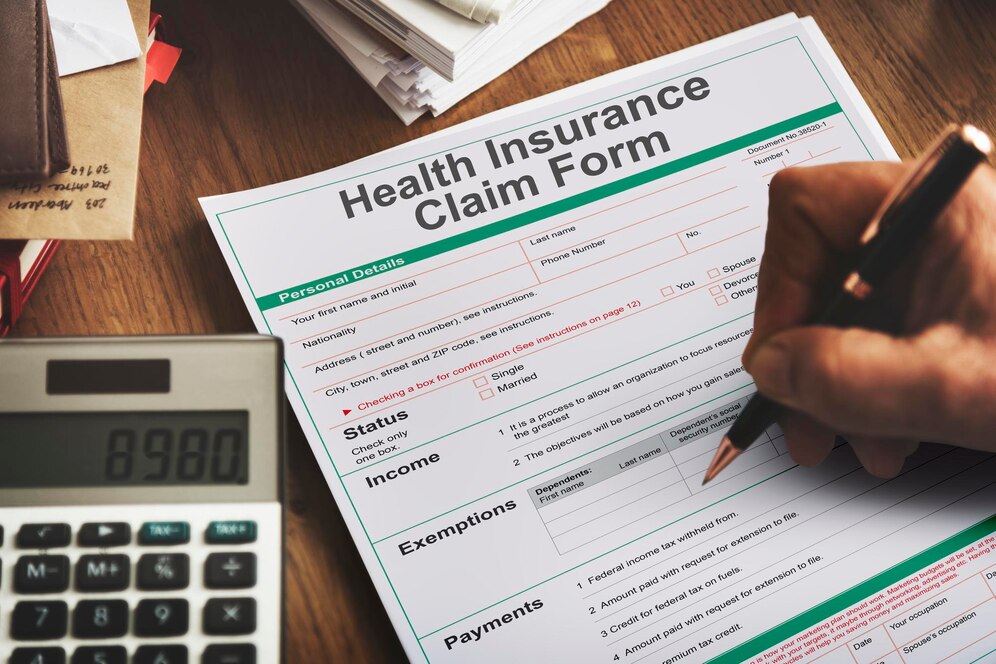
Families Health insurance Tips
6 Families Health insurance Tips

Buying Families Health
6 Tips for Buying Families Health insurance
How Medi-Cal Works
Program Eligibility by Federal Poverty Level for 2024
Your financial help and whether you qualify for various Covered California or Medi-Cal programs depends on your income, based on the Federal Poverty Level (FPL). https://www.coveredca.com/pdfs/FPL-chart.pdf
Steps to Medi-Cal
Medi-Cal is California’s Medicaid program. This is a public health insurance program that provides free or low cost medical services for children and adults with limited income and resources. Visit each topic below to learn more about the Medi-Cal process:
Are you Eligible?
Medi-Cal eligibility is based primarily on your income and, sometimes, your “countable property”.
Verify your Eligibility
Due to the high volume of new applications, the process is taking longer than normal and the steps mentioned below may be done out of order if it will help in expediting coverage.
The process for verifying your Medi-Cal eligibility, from the time your completed application is received to when you receive your Benefits Identification Card (BIC), normally takes 45 days. The general process for verification is as follows:
Apply – complete the application, and submit either in person, by mail, by phone, or online
Receive a Notification of Likely Eligibility by mail
Your county’s social services office may contact you by mail or by phone to request paper verification if income, citizenship, and other criteria cannot be verified electronically
Receive Final Notice of Action notifying you of whether or not you can receive Medi-Cal
Receive your BIC – when you receive your BIC in the mail, you are able to use the many Medi-Cal benefits available to you.
Emergency Services
Ambulance and emergency room services. These services are for sudden and serious medical conditions that require immediate attention. They include ambulance services, emergency room care, and urgent care.
Primary Care
Doctor visits for sickness, injuries or other concerns. This is the first point of contact for most healthcare needs. Primary care providers can diagnose and treat a wide range of health problems, as well as provide preventive care and manage chronic conditions.
Mental Health and Substance Use Disorder
Counseling and treatment are covered. These services provide treatment for mental health conditions and substance use disorders. They may include therapy, medication, and support groups.
Dental and Vision
Teeth cleanings, fillings, eye exams and glasses. These services focus on oral and eye health, respectively. They include cleanings, exams, treatments, and prescriptions for glasses or contacts.
Preventive Care
Enjoy free services, like well-baby visits and checkups. This includes services that aim to prevent diseases or health problems before they start. It often includes regular checkups, immunizations, screenings, and health education.
Family Planning
Counseling, screening and family-planning services. This includes services that help people plan their families, such as birth control counseling, pregnancy testing, and abortion services.
‒South Pointe Insurance Agency
Learn Small Group Health Insurance

Small Group insurance 101
Small Group insurance 101

Small Group insurance Tips
6 Small Group insurance 101 Tips

Buying Small Group insurance
6 Tips for Small Group 101
Brand-Name Insurance
All of our plans include preventive care, doctor visits, emergency care and much more.
Financial Help
Many customers pay $10 or less per month with financial help that’s only available here. Others may qualify for free Medi-Cal coverage.
Are you Eligible?
Businesses with 2-100 employees (including owners and spouses) qualify for small group plans. You must have at least one W-2 employee besides yourself or your spouse.
Important factors to consider:
Network: PPO plans offer more flexibility in choosing providers, while HMOs typically have lower premiums but require in-network care.
Monthly premiums: These vary based on factors like plan design, employee demographics, and your chosen network.
Deductibles and copays: These determine how much you and your employees pay out-of-pocket for covered services.
Employer and employee contributions: Decide how much each party will contribute to the monthly premium.
Emergency Services
Ambulance and emergency room services. These services are for sudden and serious medical conditions that require immediate attention. They include ambulance services, emergency room care, and urgent care.
Primary Care
Doctor visits for sickness, injuries or other concerns. This is the first point of contact for most healthcare needs. Primary care providers can diagnose and treat a wide range of health problems, as well as provide preventive care and manage chronic conditions.
Mental Health and Substance Use Disorder
Counseling and treatment are covered. These services provide treatment for mental health conditions and substance use disorders. They may include therapy, medication, and support groups.
Dental and Vision
Teeth cleanings, fillings, eye exams and glasses. These services focus on oral and eye health, respectively. They include cleanings, exams, treatments, and prescriptions for glasses or contacts.
Preventive Care
Enjoy free services, like well-baby visits and checkups. This includes services that aim to prevent diseases or health problems before they start. It often includes regular checkups, immunizations, screenings, and health education.
Family Planning
Counseling, screening and family-planning services. This includes services that help people plan their families, such as birth control counseling, pregnancy testing, and abortion services.












